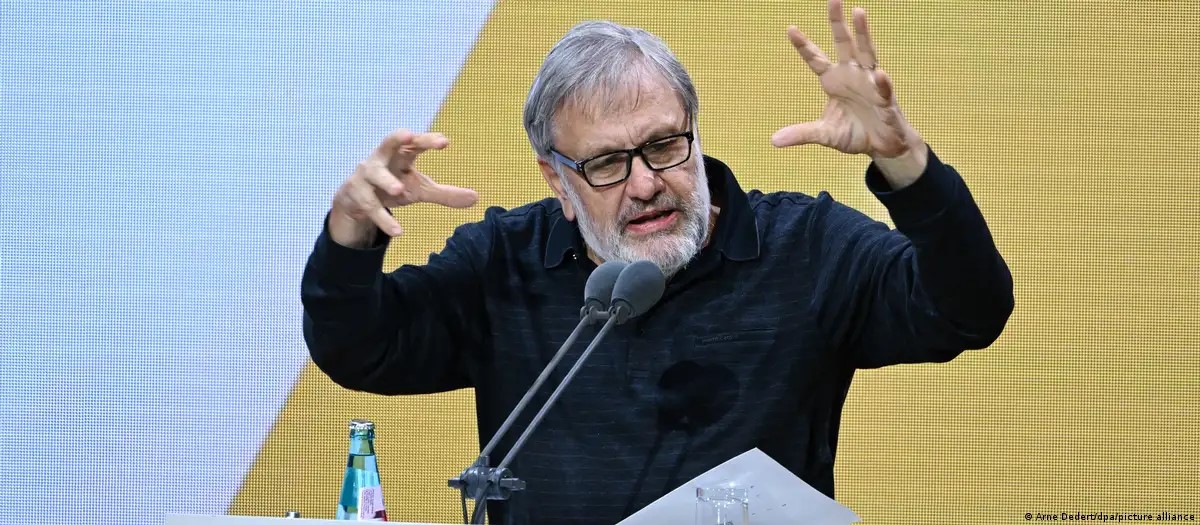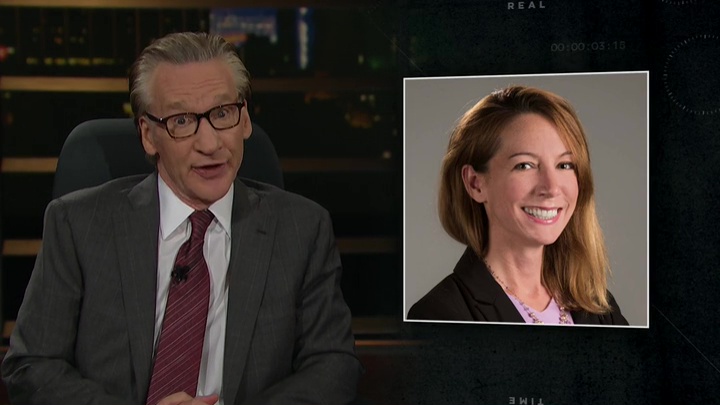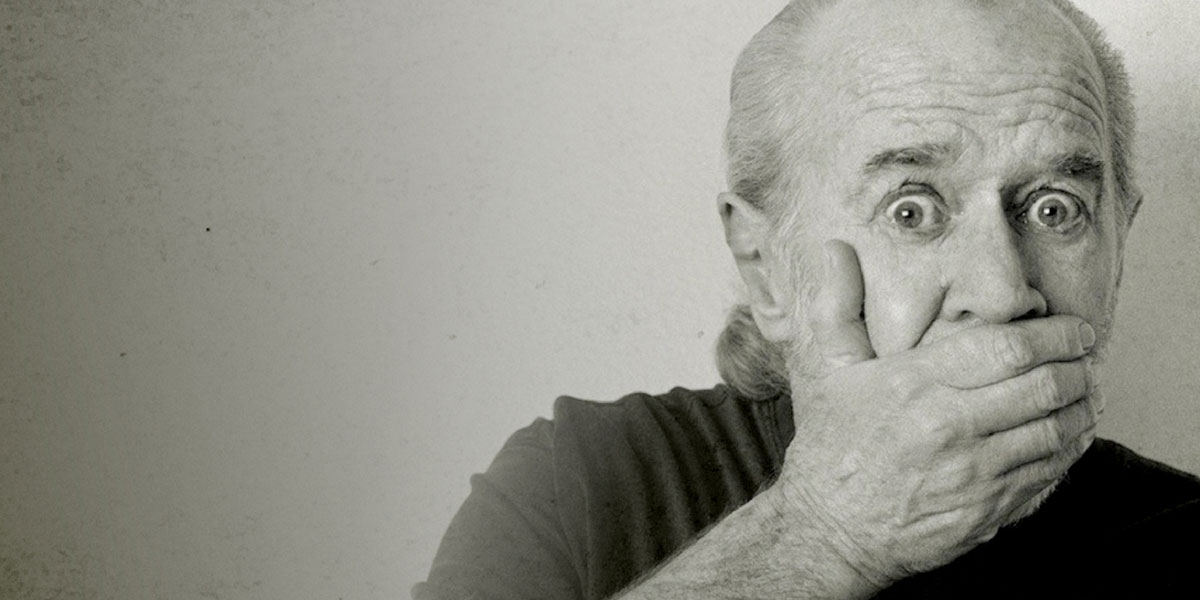Slavoj Žižek doesn’t buy into political correctness. In fact, it frightens him. The famed philosopher and social critic describes political correctness as a tacit form of totalitarianism, an act of coercion built upon the premise that “I know better than you what you really want.”
This isn’t to say that people should be allowed to go around treating others poorly, but Žižek argues that employing coercion and scare tactics to instill a state of forced behavior completely missed the point. To Žižek, the kinds of obscenity targeted by political correctness are much more effective at breeding a sense of shared solidarity than most alternatives.
Of course I have nothing against the fact that your boss treats you in a nice way and so on. The problem is if this not only covers up the actual relationship of power but makes it even more impenetrable. You know, if you have a boss who is up there, the old fashioned boss shouting at you, exerting full brutal authority. In a way it’s much easier to rebel than to have a friendly boss who embraces you or how was the last night with your girlfriend, blah, blah, all that buddy stuff. Well then it almost appears impolite to protest. But I will give you an example, an old story that I often use to make it clear what do I mean by this. Imagine you or me, I’m a small boy. It’s Sunday afternoon. My father wants me to visit our grandmother. Let’s say my father is a traditional authority. What would he be doing? He would probably tell me something like I don’t care how you feel, it’s your duty to visit your grandmother. Be polite to her and so on. Nothing bad about this I claim because I can still rebel and so on. It’s a clear order.
But what would the so called post-modern non-authoritarian father do? I know because I experienced it. He would have said something like this. You know how much your grandmother loves you but nonetheless I’m not forcing you to visit her. You should only visit her if you freely decide to do it. Now every child knows that beneath the appearance of free choice there is a much stronger pressure in this second message. Because basically your father is not only telling you you must visit your grandmother but you must love to visit it. You know he tells you how you must feel about it. It’s a much stronger order. And I think that this is for me almost a paradigm of modern permissive authority. This is why the formula of totalitarianism is not – I don’t care what you think, just do it. This is traditional authoritarianism. The totalitarian formula is I know better than you what you really want and I may appear to be forcing you to do it but I’m really just making you do what without fully knowing what you want and so on. So in this sense yes, I am horrified by this. Also another aspect this new culture of experts where an injunction is presented just as a neutral statement.
For example, one example that I like and let’s not have a misunderstanding here. I don’t smoke and I’m for punishing tobacco companies and so on and so on. But I’m deeply suspicious about our phobia about smoking. I don’t buy it that this can be really justified just based on scientific knowledge how cigarettes hurt us and so on and so on. Because my first problem is that most of the people who oppose smoking then usually are for legalization of grass and so on and so on. But my basic problem is this one. Look, now they found a more or less solution – e-cigarettes, electronic cigarettes. And I discovered that now big American airline companies decided to prohibit them. And it’s interesting to read the reason why. The reason is not so much that it’s not yet sure are they safe or not. Basically they are. The idea is that if you smoke during the flight e-cigarette you publicly display your addiction and that is not a good pedagogical example for others and so on and so on.
I mean I find this a clear example of how a certain ethics which is not just neutral ethics of health but basically I think it’s ethics of don’t fall into it, don’t have a too passionate engagement. Remain at the proper distance, control yourself and so on. And now I will shock you to end. I think even racism can be ambiguous here. You know once I made an interview where I was asked how do we find reactionary racism. You know what was my answer. With progressive racism. Then, ah, ah, what do you mean? Of course I didn’t mean racism. What I meant is the following things. Of course racist jokes and so on can be extremely oppressive, humiliating and so on. But the solution I think is to create an atmosphere or to practice these jokes in such a way that they really function as that little bit of obscene contact which establishes true proximity between us.
And I’m talking from my own past political experience. Ex-Yugoslavia. I remember when I was young when I met from other – when I met with other people from ex-Yugoslavia republics – Serbs, Croat, Bosnians and so on. We were all the time telling dirty jokes about each other. But not so much against the other. We were in a wonderful way competing who will be able to tell a nastier joke about ourselves. These were obscene racist jokes but their effect was a wonderful sense of shared obscene solidarity. And I have another proof here. Do you know that when civil war exploded in Yugoslavia, early nineties and already before in the eighties ethnic tensions. The first victims were these jokes, they immediately disappeared. Because people felt well that, for example, let’s say I visit another country. I hate this politically correct respect, oh, what is your food, what are your cultural forms. No, I tell them tell me a dirty joke about yourself and we will be friends and so on. It works.
So you see this ambiguity – that’s my problem with political correctness. No it’s just a form of self-discipline which doesn’t really allow you to overcome racism. It’s just oppressed controlled racism. And the same goes here. I will tell you a wonderful story, a simple one. It happened to me a year ago around the corner here in the bookstore. I was signing a book of mine. Two black guys came, African Americans, I don’t like the term. My black friends also not, because for obvious reasons it can be even more racist. But the point is and they asked me to sign a book and seeing them there I couldn’t resist the worst racist remark. When I was returning the books to them I told them you know, I don’t know which one is for whom, you know, you blacks like yellow guys, you look all the same. They embraced me and they told me you can call me n i g g a. You know when they tell you this it means we are really close. They instantly got this. Another stupid problem I had. At some talk there was a mute and deaf guy and he asked if a translator can be there. And I couldn’t resist it. In the middle of the talk in front of 200-300 people I said what are you doing there guys. My idea was that if you watch the gestures of the translator it looked to me as if some obscene messages or what. The guy laughed so much we became friends. And some old stupid lady reported me for making fun of crippled people. It was so didn’t she see that’s how I became friends with the guy.
But I’m – wait a minute. Now I’m not an idiot. I’m well aware this doesn’t mean we should just walk around and humiliate each other. It’s a great art how to do it. I’m just saying that’s my hypothesis. Without such a tiny exchange of friendly obscenities you don’t have a real contact with another. It remains this cold respect and so on, you know. We need this. We need this to establish a real contact. This is what is lacking for me in political correctness. And then you end up in madness like it’s not a joke. I checked with my Australian friend. You know what happened in Perth, the west coast Australian city. It’s not a joke I repeated. The opera house there prohibited staging of Carmen. Opera Carman, you know why? Because the first act takes place in front of a tobacco factory. I’m not kidding. I’m not kidding. I’m just saying that there is something so fake about political correctness. It’s – I know it’s better than open racism of course. But I wonder if it works because, you know, I never for example bought all these permanent replacement, you know. N i g g e r s are Negros. Negros are black. Okay, black are African Americans. Maybe – it’s up to them to decide.
The only thing I know is that when I was in Missoula, Montana, I got engaged in a very friendly conversation with some Native Americans. They hate the term and they gave me a wonderful reason. They told me Native American and you are a cultural American so what, we are part of nature. They told me we much preferred to be called Indians. At least our name is a monument to white men’s stupidity who thought they are in India when they come here. And they had such a wonderful insight into how all this new age bullshit, you know, we white people technologically exploit nature while natives relate to nature in a dialogic way like before they dig into earth they ask the mountain for permission if they are mining blah, blah. They don’t mean that – research shows that Native Americans, Indians, killed much more buffalos and burned much more forests than white people. You know why this was the correct point. Like the message was the most racist thing is to patronizingly elevate us in that, you know, primitive, organic, living together with mother nature. No, their fundamental right is to be evil also. If we can be evil, why shouldn’t they be evil and so on. So again even with racism, one has to be very precise not to fight racism in a way which ultimately reproduces if not directly racism itself at least the conditions for racism.




